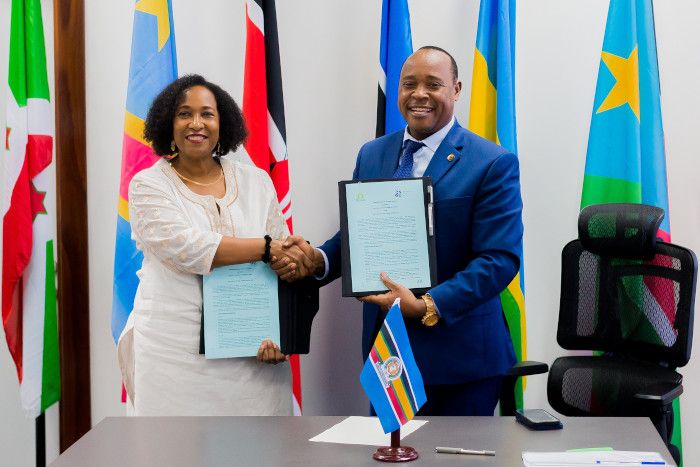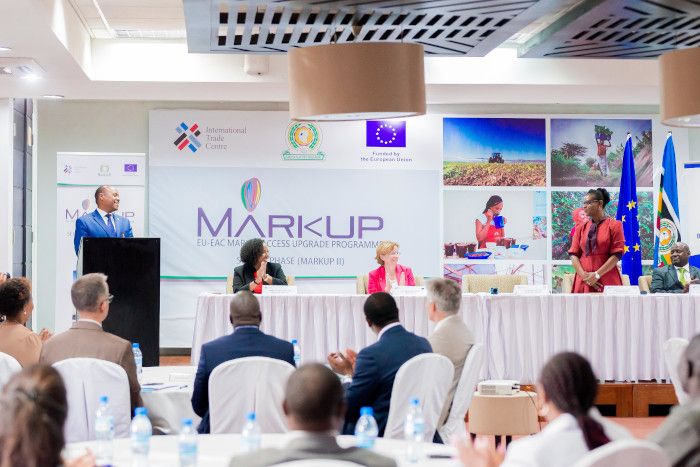MARKUP II
MARKUP II
The second phase of the EU-EAC Market Access Upgrade Programme (MARKUP II) was launched at a ceremony held in Arusha on 3rd October 2023.
Building on the successes of MARKUP I, the new phase will focus on EAC priority sectors including avocado, cocoa, coffee, essential oils, French beans, gum arabic, horticulture, leather, packaging, spices, and tea – with an emphasis on processing, value addition, diversification, investment, and export linkages.
MARKUP II, is a €40 million regional initiative funded by the European Union (EU) to unlock the full potential of agribusinesses within the EAC region
Implemented by the International Trade Centre (ITC) in collaboration with the East African Community (EAC) Secretariat, MARKUP II will strengthen EAC’s small businesses through enhanced regional and international trade in close partnership with the East African Business Council, EAC Partner States, business support organizations, and local institutions.
A new development in MARKUP II is the inclusion of packaging as a standalone and crosscutting value chain, addressing the unique challenges of micro, small and medium-sized enterprises in the EAC. MARKUP II will as well provide opportunities for inclusion of women and youth in trade.
H. E. Ambassador Christine GRAU, Delegation of the EU to Tanzania, Hon. (Dr.) Peter M. Mathuki, Secretary General of the EAC and Ms. Pamela Coke-Hamilton, Executive Director, International Trade Centre attended the formal launch ceremony.





